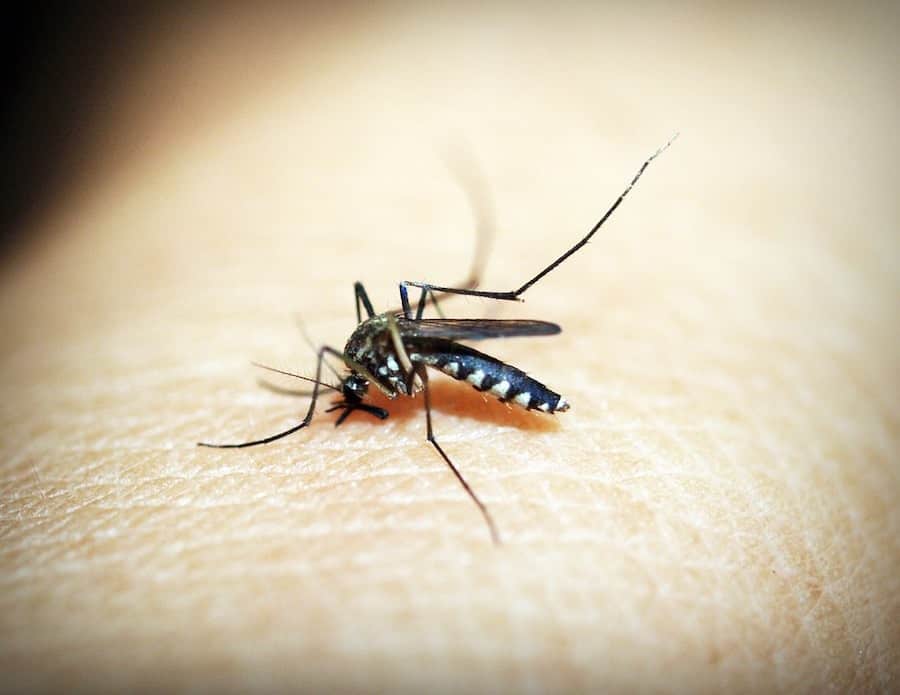Why Do Mosquito Bites Itch?
Mosquitoes are tiny insects, but don’t let their small size deceive you. They can pack a powerful punch and leave us feeling the results. If we are bitten, it can be very uncomfortable, even if it’s only one bite.
How to Tell If You’ve Been Bitten by a Mosquito
Mosquito bites are relatively easy to distinguish. They often result in the immediate appearance of a small, red and swollen bump.
You may also notice a few more bites around the same area. This is because a female mosquito who is interrupted while feeding, will quickly find a nearby food source to continue her feast.
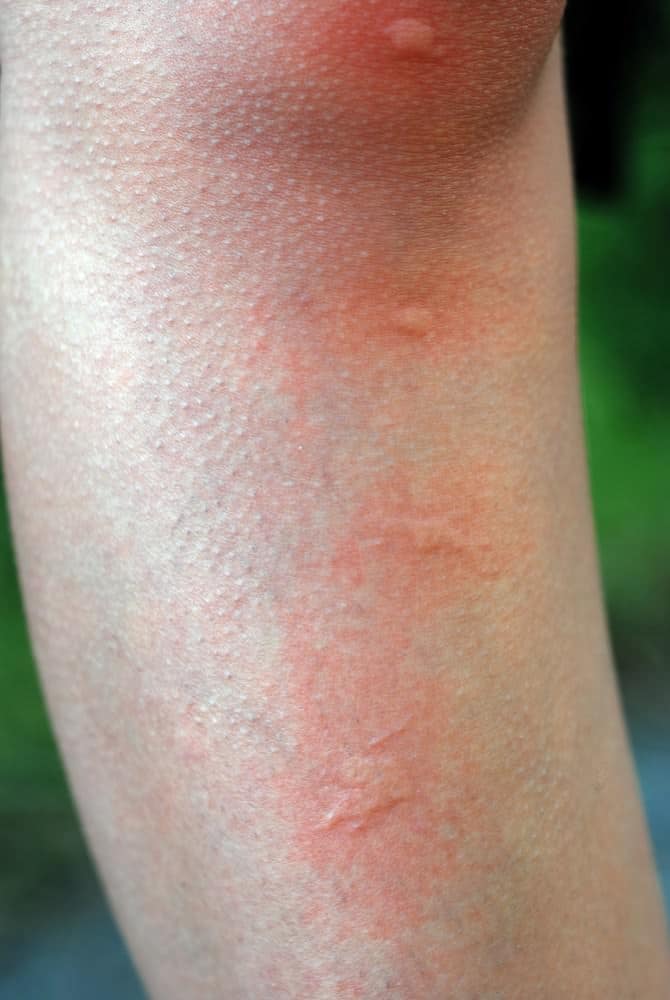
The size of the bumps caused by mosquitoes can be determined by how long the insect fed for. They are typically larger if the insect is left in peace to finish its meal.
Do Mosquito Bites Look Like Other Insect Bites?
A mosquito bite can look similar to the marks left by other insects but they do differ in a couple of ways. Firstly, the swollen bump on your body may look white in color while the area around the bite will become red.
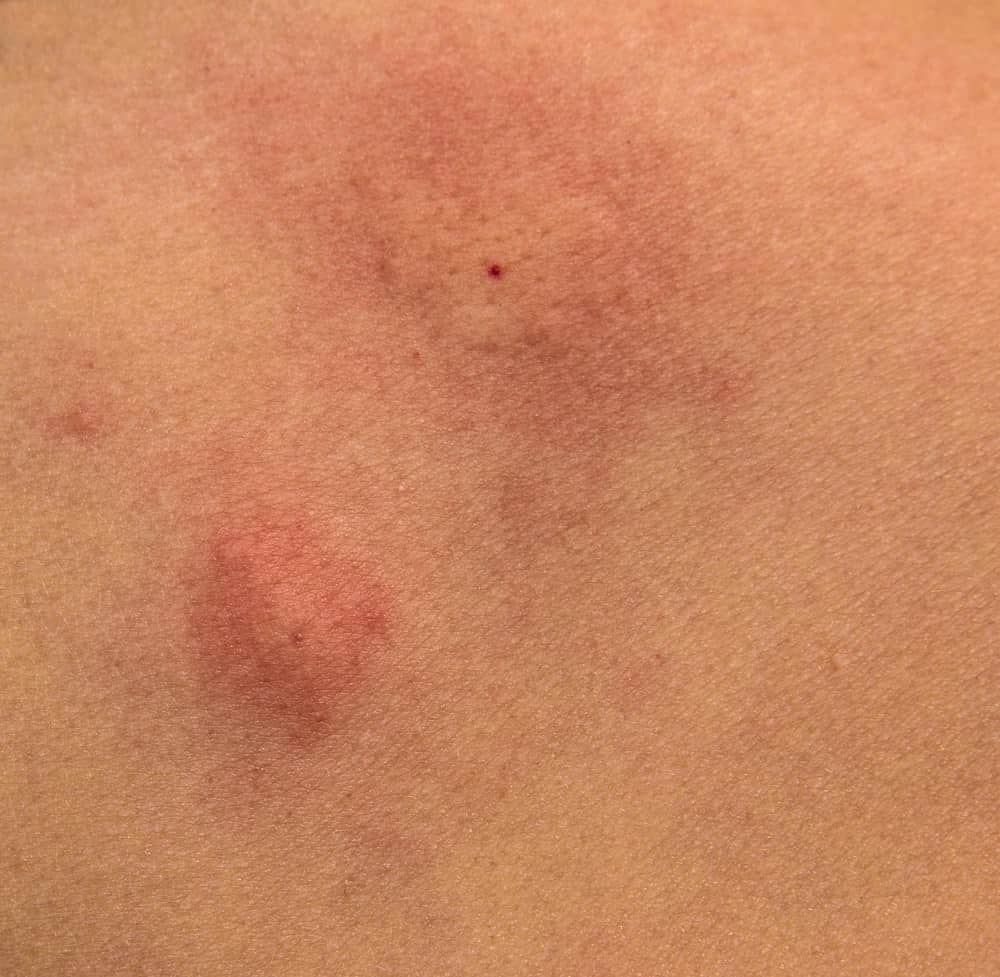
The reason for this white patch is because the bump itself is left full of fluids. Sometimes you’re even able to see the tiny hole where the mosquito pierced your skin.
Secondly, other biting pests, such as fleas, will leave lots of small, red spots in the same area, sometimes in a pattern or cluster. Mosquitoes are more random, they will typically bite wherever they find a good place.
You may wake up in the morning and find multiple bites on your body, but that doesn’t necessarily mean you’ve had numerous visitors.
Tossing and turning while sleeping can make it difficult for a mosquito to hang on to the same spot. For a mosquito to get enough blood, they might need to move to another place quickly. Unfortunately for us, that means more bites and itchiness.
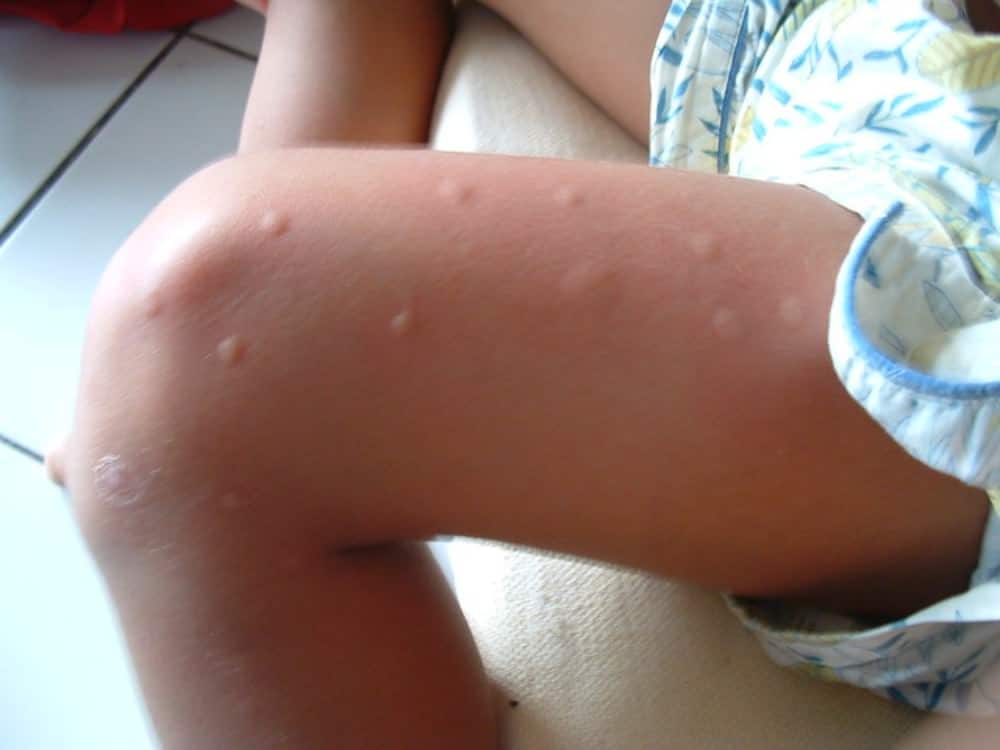
Why Do Mosquito Bites Itch?
Being bitten by mosquitoes is something I’m sure we would all like to avoid. The reason for this is clear: the resulting itch can drive many of us to distraction.
When a mosquito bites, it triggers an incredibly complex reaction in our bodies. The mosquito injects some of its own saliva when it pierces through the skin using its proboscis—a special feeding tube.
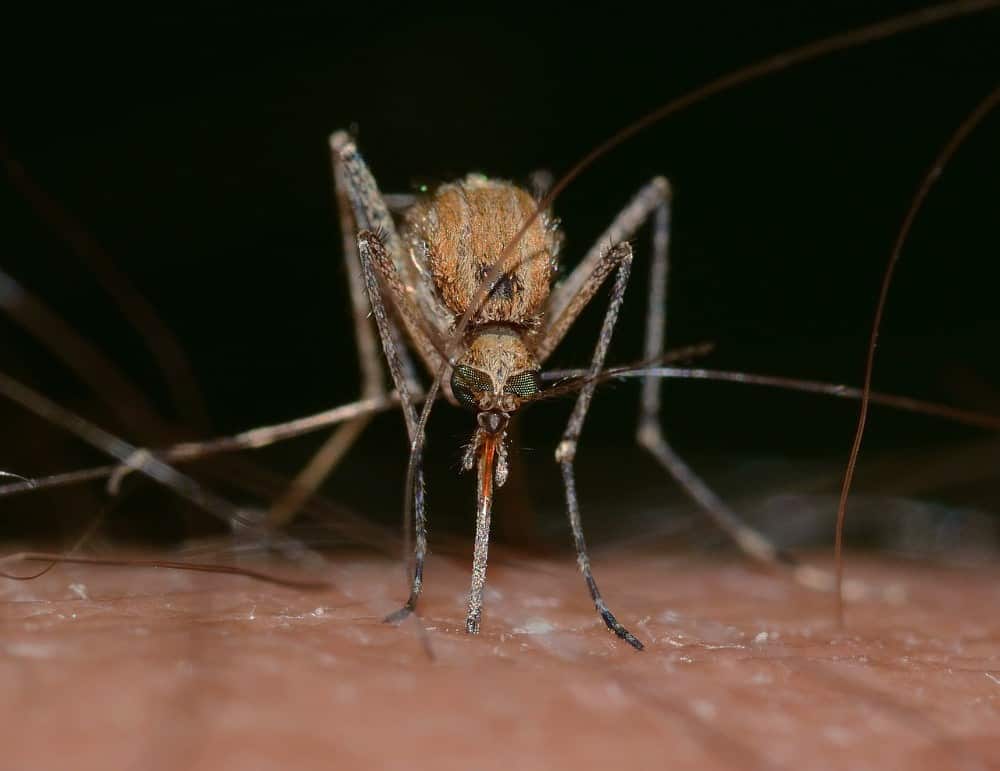
This saliva consists of different chemicals and proteins, which act similarly to an anticoagulant. This keeps the blood from clotting, making it easy for the mosquito to suck the blood from the host. The saliva also acts as a natural numbing agent. This is why we usually don’t feel it straight away when a mosquito bites.
How Our Bodies React to a Mosquito Bite
What happens next can be compared to an allergic reaction. The chemicals in the mosquito’s saliva are foreign objects to our body. Whenever something new enters your bloodstream, it is seen as a danger by the immune system.
Because of this, our bodies will send out histamines and white blood cells to the affected area as quickly as possible. Both of these protect the body against infectious diseases and foreign substances, such as mosquito saliva.
A recent study suggests that the allergic reaction we experience from the mosquito bite has another connection too.
According to this study, a peripheral pathway induces our bodies to release protective measures which aren’t histamine. These cause us to itch by sending a signal to our central nervous system (CNS), which, in turn, sends a signal to the brain, telling us the bite is itching.
So, while we may like to place all the blame on mosquitoes for our discomfort, it is actually our own immune defenses which cause the itchiness.
Skeeter Syndrome
Skeeter syndrome is a severe allergic reaction to mosquito bites. As we saw above, all mosquito bites cause an allergic reaction, but this is generally mild.
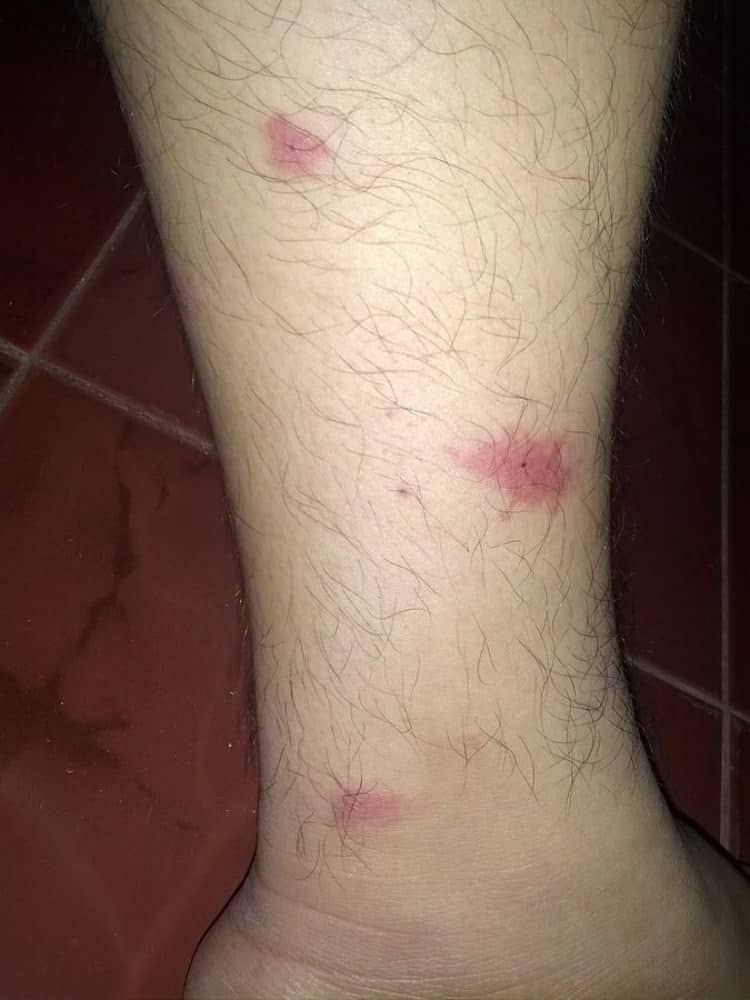
Skeeter syndrome is used to describe a condition whereby some people experience an extreme reaction to mosquito bites, including a high fever. Severe cases can cause the victim to have difficulty breathing and swelling in the arms and legs.
The best way to treat any extreme reaction to mosquito bites is by taking an antihistamine, either topically or orally. Applying a cold compress, or even a bag of frozen peas, can also help to reduce any symptoms.
Do All Mosquito Bites Itch?
All mosquito bites trigger an allergic reaction. The severity of this reaction determines how much the bite will itch.
Some people can even become immune to mosquito saliva over time. It will take quite a few bites before this happens though. People who are immune won’t feel any discomfort because their body simply doesn’t have a reaction to the bite.
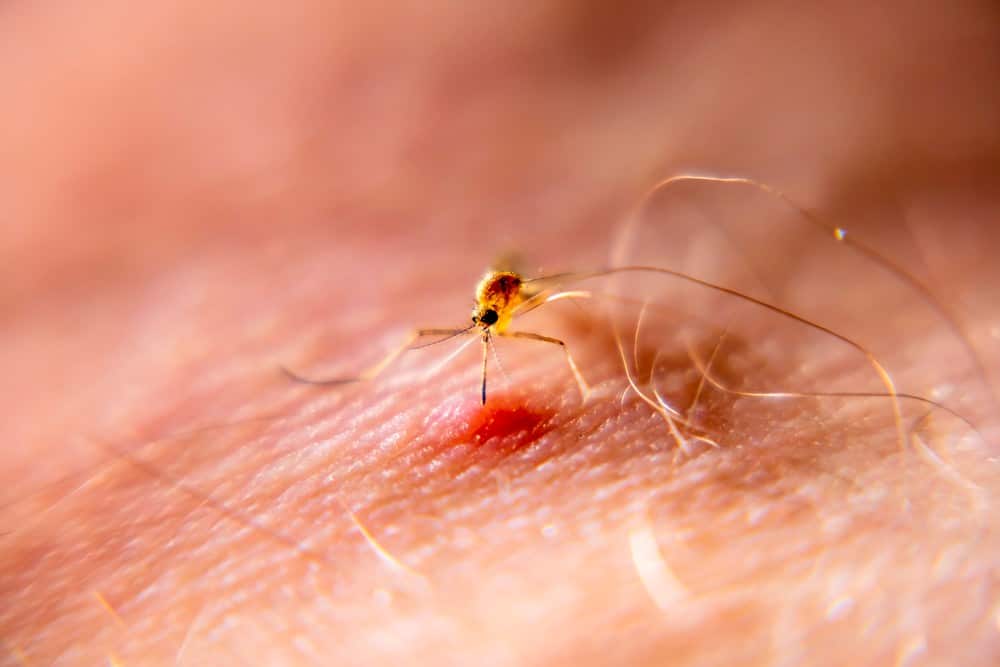
Other, more unfortunate, victims can develop an intolerance to mosquito bites which will cause severe reactions.
Scientists say that the first mosquito bite we get won’t cause a reaction. This is because the saliva is entirely new to our body, so the body hasn’t yet developed a defense mechanism.
Other bites may not itch because the mosquito was interrupted too soon when feeding. Catching the culprit before they have an opportunity to inject saliva in exchange for blood can prevent any itching.
How Long Do Mosquito Bites Usually Itch For?
How long a mosquito bite itches for depends on a few factors. Firstly, if the mosquito feeds in one place for a long time, it will inject more saliva. The more saliva in our body means a more severe reaction, causing more itching.
Secondly, if you have a more severe reaction to mosquito bites than average, the itchiness will typically last longer.
The itching can last for as little as half an hour, to a week or more. It normally doesn’t take long for an unscratched mosquito bite to stop itching. Although, it can sometimes feel like it takes forever. The itchiness doesn’t generally last as long as the bite itself.
The location of the bite also plays a significant role in determining the duration of the itch. Bites on areas where the skin is thinner, our hands and feet, for example, usually itch for longer compared to the more fatty areas, such as thighs and upper arms.
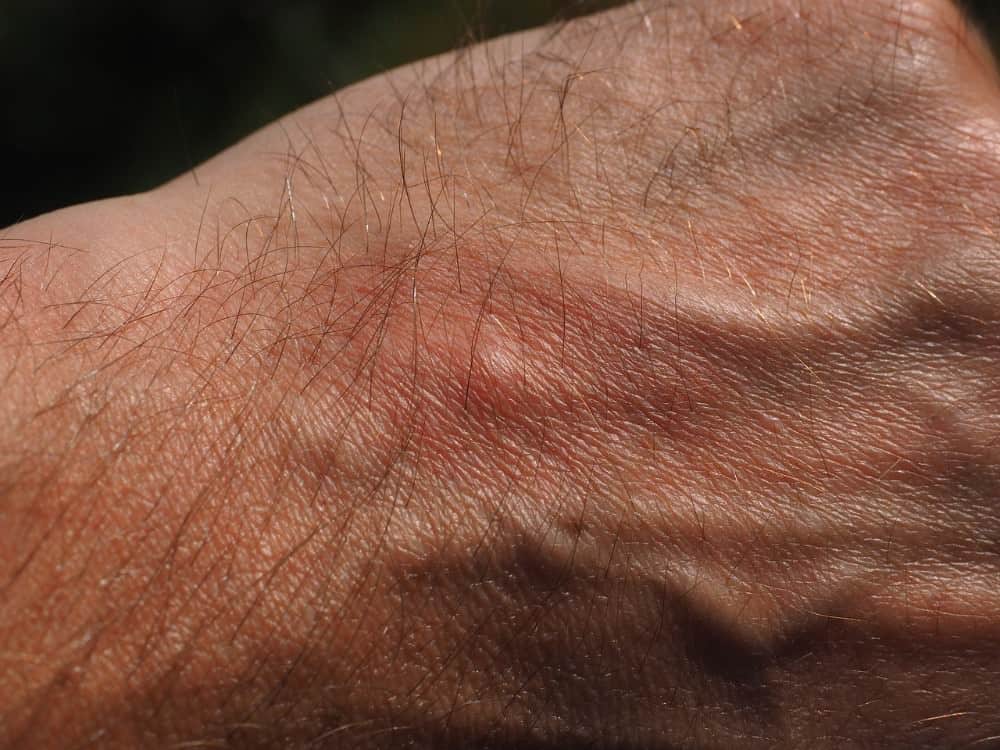
Why You Shouldn’t Scratch an Itchy Mosquito Bite
Scratching a mosquito bite can cause the itching to worsen and take longer to heal. Apart from this, scratching can also lead to a secondary infection.
When we get a mosquito bite it can be super satisfying to scratch at it, but do try to restrain yourself. When scratching at bites, we typically use the sharpest tool we have, our fingernails. However, underneath our nails, we host a wealth of bacteria and dirt.
When we give in to the itch, we can go overboard and scratch way too much. Sometimes this results in broken skin, and even blood. Once the skin is broken, you can easily end up with an infection to deal with as well as the bite.
Scratching Might Help Viruses
If you’re still not convinced enough to stop yourself from scratching at bites, here’s something that might change your mind.
Researchers have found that certain dangerous viruses which mosquitoes can carry will develop faster in our bodies if we scratch at a bite. This is because the inflammation caused by the scratching actually aids the virus, helping it to move faster through your body.
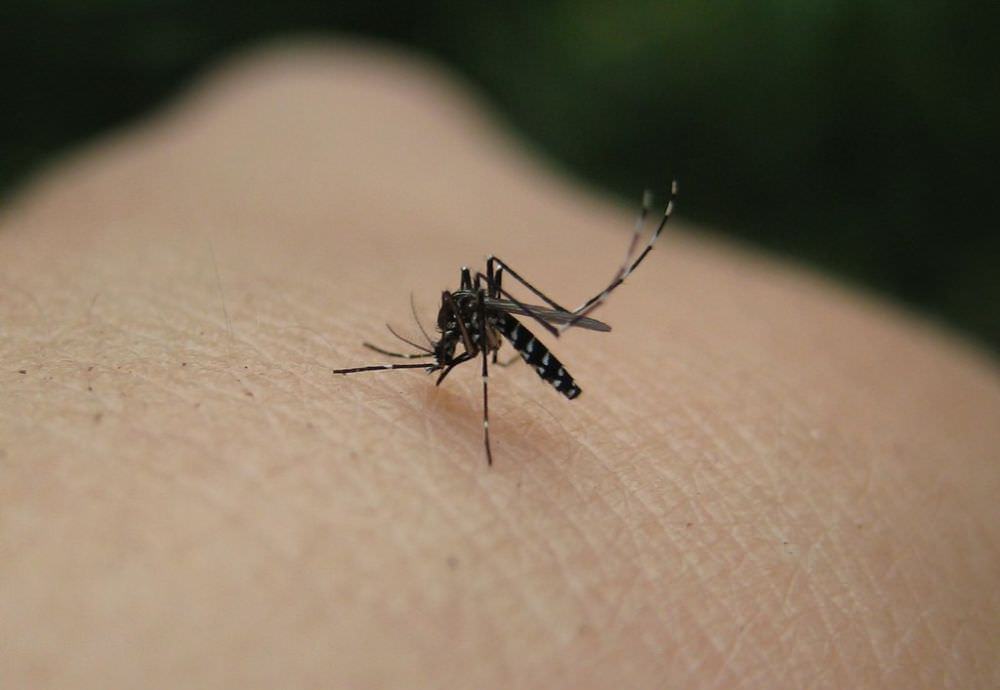
There are two white blood cell types that rush to the site of a mosquito bite: neutrophils and myeloid. These usually help to repair the damage and get rid of the foreign object or substance. However, studies have shown that some of these cells can get infected with a virus, if present. In some cases they can even replicate the virus, spreading the infection further.
This is more likely to happen if we scratch, causing additional inflammation. So next time you get a mosquito bite, stop yourself before scratching at it too much. If the itchiness becomes too much and you feel like you must scratch, try to slap the area gently or tap it with your finger. This can sometimes relieve the itch.
How to Relieve Mosquito Bite Itching
If mosquito bites have left you suffering from an annoying and persistent itch, there are a few things you can do to relieve the itching. Let’s go over some of those things now.
Water and Soap
The first thing you should do is wash the area with cold water and soap. Try to wash the bite thoroughly to get rid of any extra saliva that might be hanging around.
Cold Compress
Immediately after discovering a bite, you should apply something cold to the site. A cold compress, ice, or a bag of frozen vegetables are all good options.
The cold will help to calm the histamine-triggered reaction. It will also soothe your skin, helping you to avoid getting an infected mosquito bite brought about by scratching.
Calamine Lotion
Calamine lotion is a classic pink concoction that many mothers seem to love. It consists of zinc oxide, ferric oxide, and ATC code. These ingredients act to relieve any itchiness and calm the skin. It can be used to treat many conditions, from insect bites to sunburn.
In the 90s, the FDA declared that calamine lotion is ineffective when it comes to treating itchiness. Yet, to this day, doctors still recommend using it.
Antihistamine
Since it is histamine that is mostly to blame for the itching we feel, antihistamine medication makes sense.
As histamine floods the site of the bite, it expands the blood vessels, making the blood flow easier. The antihistamine helps the vessels to return to normal, slowly stopping the swelling. Antihistamine cream can sometimes temporarily soothe an itching mosquito bite, however, you may need to re-apply the cream several times.
Taking an antihistamine tablet after being bitten is not a quick fix. It takes time to enter the bloodstream and treats the whole body, rather than just the affected area. Some people choose to take an antihistamine tablet before traveling, to help prevent severe reactions from occurring. Please check with your doctor before administering yourself this drug, though.
Natural Remedies
There are many natural remedies that claim to relieve even the worst itches. There are some that work well and others that don’t achieve much at all. Here are my favorite two:
Tea
Different types of tea can fix a lot of things, including a bad cough. Tea can also be used to relieve bad itching from a mosquito bite.
Tea is full of natural tannins, these act as an astringent which draws the toxins out of the skin and helps to ease the discomfort.
This remedy is as easy as brewing up your favorite tea. Then, while you’re sipping the warm beverage, simply press the damp tea bag, drained of liquid, against the bite.
Peppermint
Peppermint is a natural mosquito repellent, so it makes sense that it will also help to soothe a bite.
Mint is an easy plant to grow on your porch or in your garden. It doesn’t require much work and it will keep the mosquitoes at a distance.
Mash a few peppermint leaves together until they form a sort of paste. Apply the paste gently to the bite, for a cool, soothing feeling.
Whatever solution you choose, finding a quick go-to is essential so you’ll always have something ready. This is especially helpful if you have young children who may be more bothered by mosquito bites.
Now we know why mosquito bites are itchy, this might help us deal with them a bit better. Remember, you should never scratch. Instead, gently tap or slap the area if needed, and apply some form of bite relief as soon as possible.

